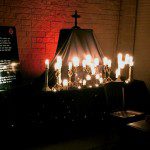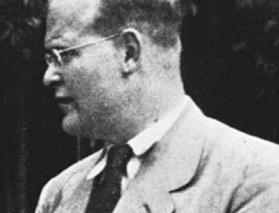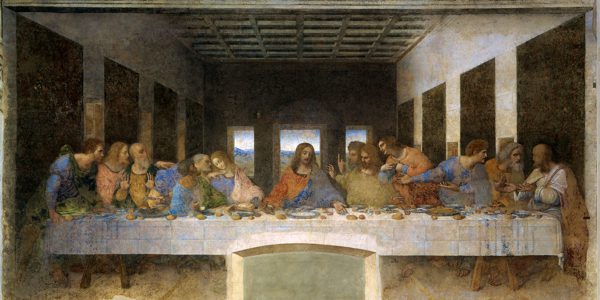Hold your breath for a better day, and you’ll never learn how to breathe.
You’re afraid of the dark, but that’s where you learn to see.
Your no good to the living if you’re too afraid to bleed.
And that’s why your show starts now Your show starts now.
– The Show Starts Now, by Cloud Cult
If you follow Jesus for any length of time, you will undoubtedly spend some time in the wilderness. I’ve been through the wilderness scores of times in my journey – I’m just returning from several months there. Sometimes the trip lasts for a long weekend, sometimes it lasts for months. I’ve never felt like I was wandering in the wilderness for years, but I know those who have. Wandering in the wilderness can be frustrating and painful, but it is an unavoidable part of the authentically human/Christian experience.
Lent is the intentional practice of wilderness living.
The more time I spend in the wilderness, the more convinced I become that time there is absolutely necessary for our spiritual vitality. I think there is a case to be made for the fact that wilderness is even essential to missional living. After all, between Jesus’s calling and anointing by John in the Jordan, and Jesus’s first official sermon in Nazareth – he had to spend his forty days in the wilderness. Being called and anointed was not enough for Jesus – he had to spend his time in the domain of the wild beasts.
In her book Leaving Church, Barbara Brown Taylor writes what I think is one of the more insightful narratives about spiritual wilderness, (Chapter 14 – Losing). What makes it so incredible is its ordinariness. We’ve all done time in the wilderness. Typically only the spectacular wilderness adventure makes it to the big screen or the publishers. What about the ordinary wilderness of the ordinary person? Taylor’s story is remarkable in that it is so ordinary and common, described with an uncommon vision and pen.
Taylor tells the story of a workshop she attended during which a presenter told of how he took his students on “wilderness” trips to give them a taste of life nearer the edge. They would do activities such as hiking, white water rafting, ropes courses, and other activities meant to stretch their comfort zones. A member of the audience questioned the presenter – here’s the interaction:
“Excuse me,” a member of the audience said, “but are there predators in those places who are above you on the food chain?”
“Well of course not,” the presenter said, “I wouldn’t put the students in danger like that.”
“I wouldn’t either,” the man in the audience said, “But don’t lull them into thinking that they have experienced true wilderness. It’s only wilderness if there’s something out there that can eat you.” (p.172)
It’s only the wilderness if there’s something out there that can eat you. That’s dang right.
Craig Minowa is the front man for the band Cloud Cult. Although Minowa is not a professing Christian, he has spent some time in the wilderness and lived to write about it. When his son was 2 years old, he and his wife put him to bed and he never woke up. Minowa’s music is a testament to the ways in the which the wilderness can make us more human: “Hold your breath for a better day,” Minowa writes, “and you’ll never learn how to breathe. You’re afraid of the dark, but that’s where you learn to see.”
These are two indispensable ideas about the wilderness experience:
- It’s only the wilderness if there’s something out there that can eat you (Taylor). If you are to be any good to God in this world, you will have to spend your own time with the wild beasts. This is at least part of why Jesus’s characteristic call was to “take up your cross and follow me.” You risk your life to do this. You cannot follow Jesus in safety.
- You’re afraid of the dark, but that’s where you learn to see (Cloud Cult). Following Jesus is all about learning to see. “The eye is the lamp of the body,” he taught. If you are going to learn to participate in the mission of God, you have to learn how to see things nobody else can see – namely, the ways that God is already at work in the world. In order to see the kingdom of God, we have to retrain our eyes. An essential part of the training comes in the wilderness. It is in the wilderness that our senses are heightened because our very lives depend upon them.
I think I’ll benefit from these two bits of wisdom as I’m wandering in the deep weeds with the wild beasts this Lent. I hope you’ll let these two phrases guide your time as well.












